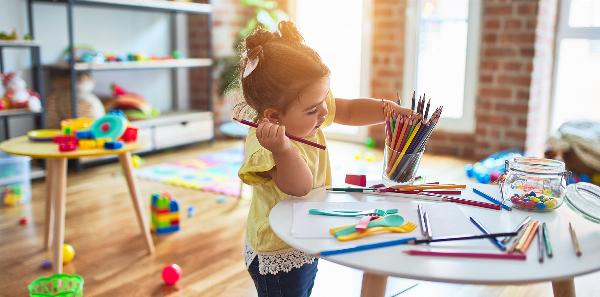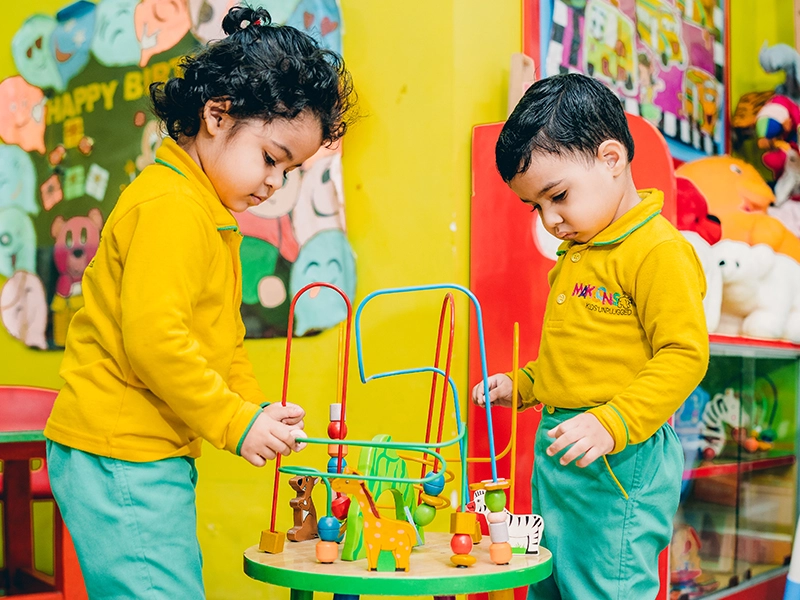The Importance of Learning in Early Childhood Development

Strong 8k brings an ultra-HD IPTV experience to your living room and your pocket.
Learning is a fundamental part of human development, particularly during childhood. The early years of a child's life are crucial for cognitive, social, and emotional development. This article explores the various dimensions of kids' learning, the importance of fostering a supportive environment, and the role of parents, educators, and the community in shaping young minds.
Understanding Childhood Learning
The Stages of Development
Childhood learning occurs in several distinct stages, each marked by unique characteristics and developmental milestones. According to psychologist Jean Piaget, children progress through four stages of cognitive development:
Sensorimotor Stage (Birth to 2 years): In this stage, children learn through their senses and actions. They explore the world by touching, seeing, and manipulating objects. This exploration lays the foundation for future learning.
Preoperational Stage (2 to 7 years): Children in this stage begin to think symbolically and use language to represent objects. They develop imaginative play, which is vital for cognitive growth, as it encourages creativity and problem-solving skills.
Concrete Operational Stage (7 to 11 years): Logical thinking starts to emerge. Children begin to understand the concept of conservation—realizing that quantity doesn’t change even if the shape does. They become more adept at organizing thoughts and understanding relationships.
Formal Operational Stage (12 years and up): This stage marks the beginning of abstract thinking. Adolescents can think about hypothetical situations and reason logically.
Learning Theories
Several educational theories inform our understanding of how children learn:
Constructivism: This theory suggests that children learn best through active engagement and experiences rather than passive reception of information. Learning is seen as a process of constructing knowledge based on experiences.
Behaviorism: This approach focuses on observable behaviors and the ways they're shaped by the environment. Positive reinforcement can encourage desired behaviors, while negative reinforcement can discourage undesired ones.
Social Learning Theory: Proposed by Albert Bandura, this theory emphasizes the role of observation and imitation in learning. Children learn not only through direct experience but also by watching others, particularly caregivers and peers.
The Role of Environment in Learning
Creating a Supportive Learning Environment
A child's learning environment significantly impacts their development. An ideal learning environment is safe, nurturing, and stimulating. Here are some key elements:
Safety and Security: Children learn best when they feel safe and secure. A stable home and school environment allows them to explore and take risks, which is essential for learning.
Access to Resources: Books, educational toys, and interactive materials should be readily available. These resources encourage exploration and learning through play.
Social Interaction: Interaction with peers and adults is vital. Collaborative learning fosters communication skills, teamwork, and empathy, allowing children to learn from one another.
The Role of Play in Learning
Play is an essential component of childhood learning. Through play, children engage in imaginative and creative activities that promote problem-solving skills and emotional development. Play-based learning not only makes learning enjoyable but also allows children to explore concepts at their own pace.
Research has shown that children learn best when they are actively involved in their learning process. Activities like role-playing, building with blocks, or engaging in arts and crafts can reinforce lessons and stimulate cognitive growth.
The Role of Parents and Educators
Parents as Educators
Parents play a critical role in their children's learning journey. Early childhood is a time when children absorb information at a rapid pace. Here are some ways parents can support their children's learning:
Reading Together: Reading to children enhances vocabulary and comprehension skills. It also fosters a love for literature that can last a lifetime.
Encouraging Curiosity: Answering questions and encouraging exploration can foster a child's innate curiosity. Parents can create a home environment where asking questions and seeking answers is valued.
Setting Routines: Establishing daily routines helps children feel secure and understand the concept of time. Routines can include set times for homework, play, and reading.
The Role of Educators
Educators are equally important in children's learning. A teacher’s approach can greatly influence a child's attitude toward learning. Here are some effective teaching strategies:
Differentiated Instruction: Recognizing that children have varied learning styles is crucial. Teachers can tailor their approaches to meet the needs of each child, ensuring that everyone has an opportunity to succeed.
Encouraging Critical Thinking: Instead of rote memorization, teachers can promote inquiry-based learning where students ask questions, research, and engage in discussions, fostering critical thinking skills.
Creating a Positive Classroom Environment: A supportive classroom where children feel valued and respected encourages participation and engagement.
The Community's Role in Supporting Learning
A child’s learning does not happen in isolation; it is influenced by the broader community. Here are some ways communities can support childhood learning:
Access to Libraries and Educational Programs: Communities can offer resources like libraries, after-school programs, and summer camps that promote learning and development.
Parental Involvement Initiatives: Encouraging parents to participate in school activities strengthens the connection between home and school, creating a unified approach to education.
Support for Diverse Learning Needs: Communities can provide resources and support for children with different learning needs, ensuring that all children have access to quality education.
Conclusion
Learning in early childhood is a multifaceted process that lays the foundation for lifelong development. By understanding the stages of learning, creating supportive environments, and fostering collaboration between parents, educators, and communities, we can ensure that children thrive in their educational journeys. Investing in early childhood learning not only benefits individual children but also contributes to a more knowledgeable and compassionate society. As we nurture the minds of the next generation, we pave the way for a brighter future for all.
Note: IndiBlogHub features both user-submitted and editorial content. We do not verify third-party contributions. Read our Disclaimer and Privacy Policyfor details.







